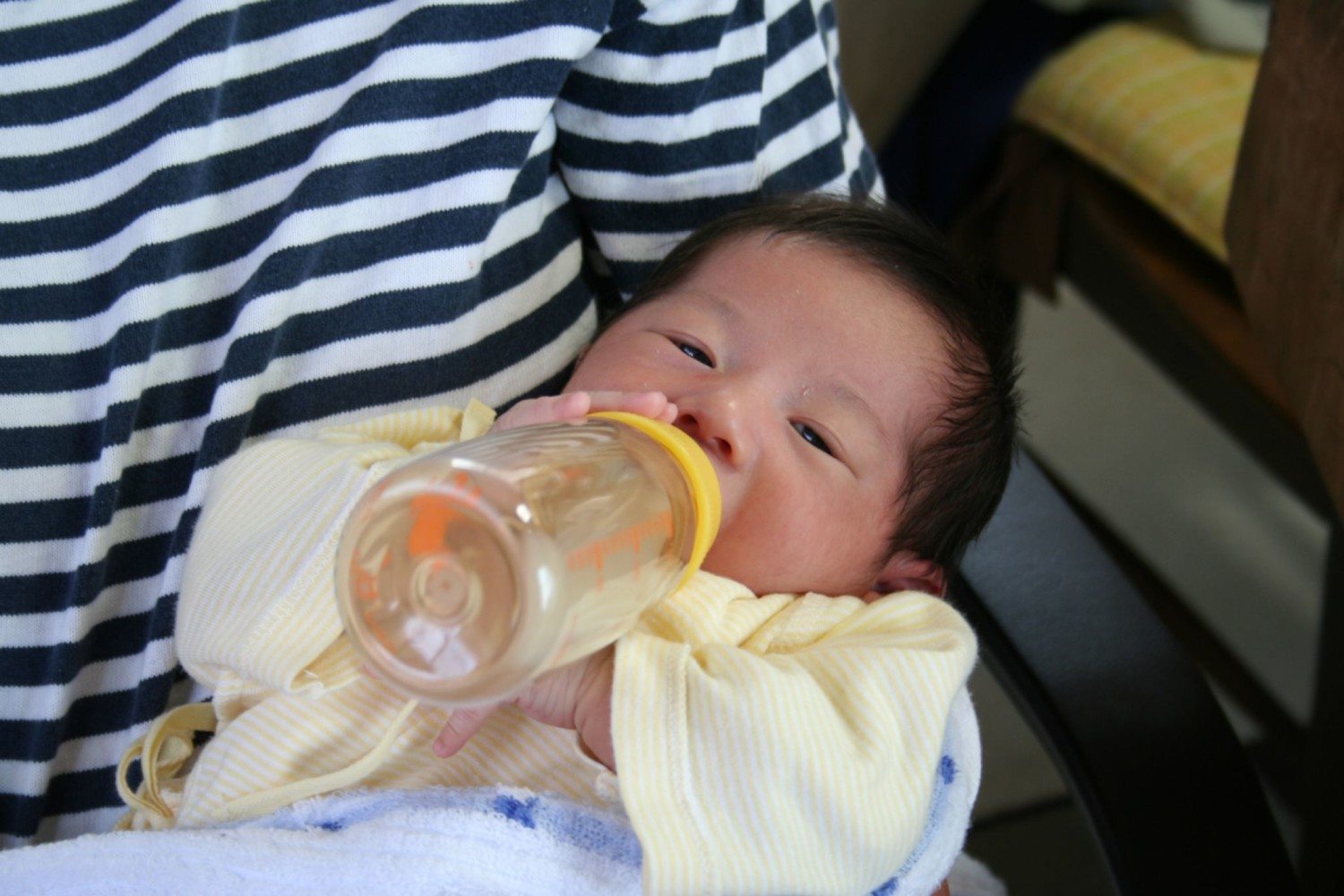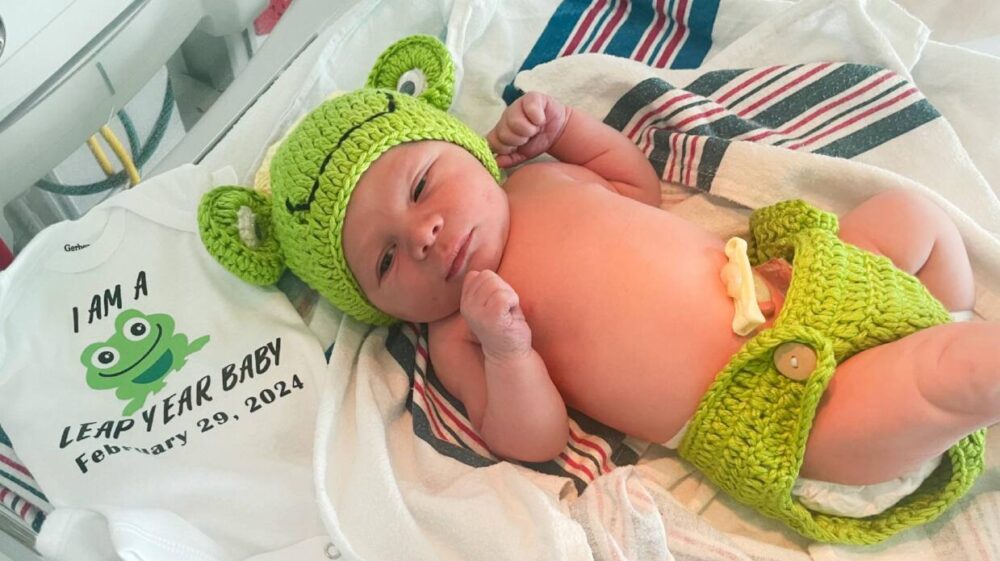Why Babies Shouldn’t Drink Water Before 6 Months
Everyone knows you’re supposed to drink eight glasses of water a day. But have you ever wondered why this rule doesn’t apply to babies, too?
How old do they need to be before they can start chugging H2O? We have the answers.
But before we get into it, know that — first and foremost — babies shouldn’t drink water until they’re at least 6 months old.
Here’s why:
According to Dr. Stephen R. Samuels, a pediatrician, a baby gets all the hydration it needs from breast milk or formula, even if it’s hot out.
“Once your baby is 6 months old, it’s okay to give him sips of water when he’s thirsty,” Samuels writes on Baby Center. “Don’t overdo it, though, or you might give him a tummy ache or make him too full to eat well.”
Why Can’t Babies Drink Water?
Giving your baby water before their bodies are ready for it can lead to water intoxication, a health issue that can be quite serious.
To be clear, if a 5-month-old takes two sips of juice, you don’t have to worry. But if a baby drinks too much water, it can overload its fragile system and lead to serious issues.
Water intoxication happens when the levels of sodium within the body are upset, wreaking havoc on the balance of electrolytes in your system.
This causes tissues to swell and can result in vomiting, seizures or even a coma. (And FYI, this can happen to adults, too, although it’s rare.)
If your baby has had water and you’re noticing some of the symptoms of water intoxication—including irritability, drowsiness or excessive urination—do call your doctor. Treatment should occur in the hospital.
Once your baby has started eating solid foods, you can begin to introduce water or juice into their diet, although there’s really no need. You don’t want to fill them up on empty calories when breast milk or formula is available.
RELATED: Here Are The Most Popular Baby Names In The U.S.
Talk to your pediatrician about when and how to introduce liquids besides breast milk and formula into your baby’s diet. Chances are, they don’t need it and you can save yourself the trouble.
Car Seat Safety Tips
While most of us take dozens of steps to keep our children safe (from childproofed outlets to bike helmets to flu vaccinations), many parents are still making a potentially dangerous mistake when it comes to their children’s car seats.
According to Safe Ride 4 Kids, as many as 84 percent of parents are using their child’s car seat incorrectly — which makes them 3.5 times more likely to be seriously injured in a crash.
One of the most common and critical mistakes that parents make is turning their child’s seat to be front-facing too soon. It is recommended that parents delay turning their child’s seat until kiddos are 2 years old, and even longer if the child doesn’t exceed the height and weight limits listed on the car seat.
Does that sound excessive to you? If so, you are not alone. Over 73 percent of parents flip their kids’ car seats too soon, putting their children at risk of injury and even death.
Here’s the official recommendation from road safety experts at AAA: “Children in the second year of life are five times less likely to die or be seriously injured in a crash if they ride in a rear-facing car seat. To protect your child, keep them rear-facing for as long as possible, at least until age 2.”


![[23/365] Milk](https://www.simplemost.com/wp-content/uploads/2017/04/5210381038_af94fc13c2_o_baby-milk.jpg)








